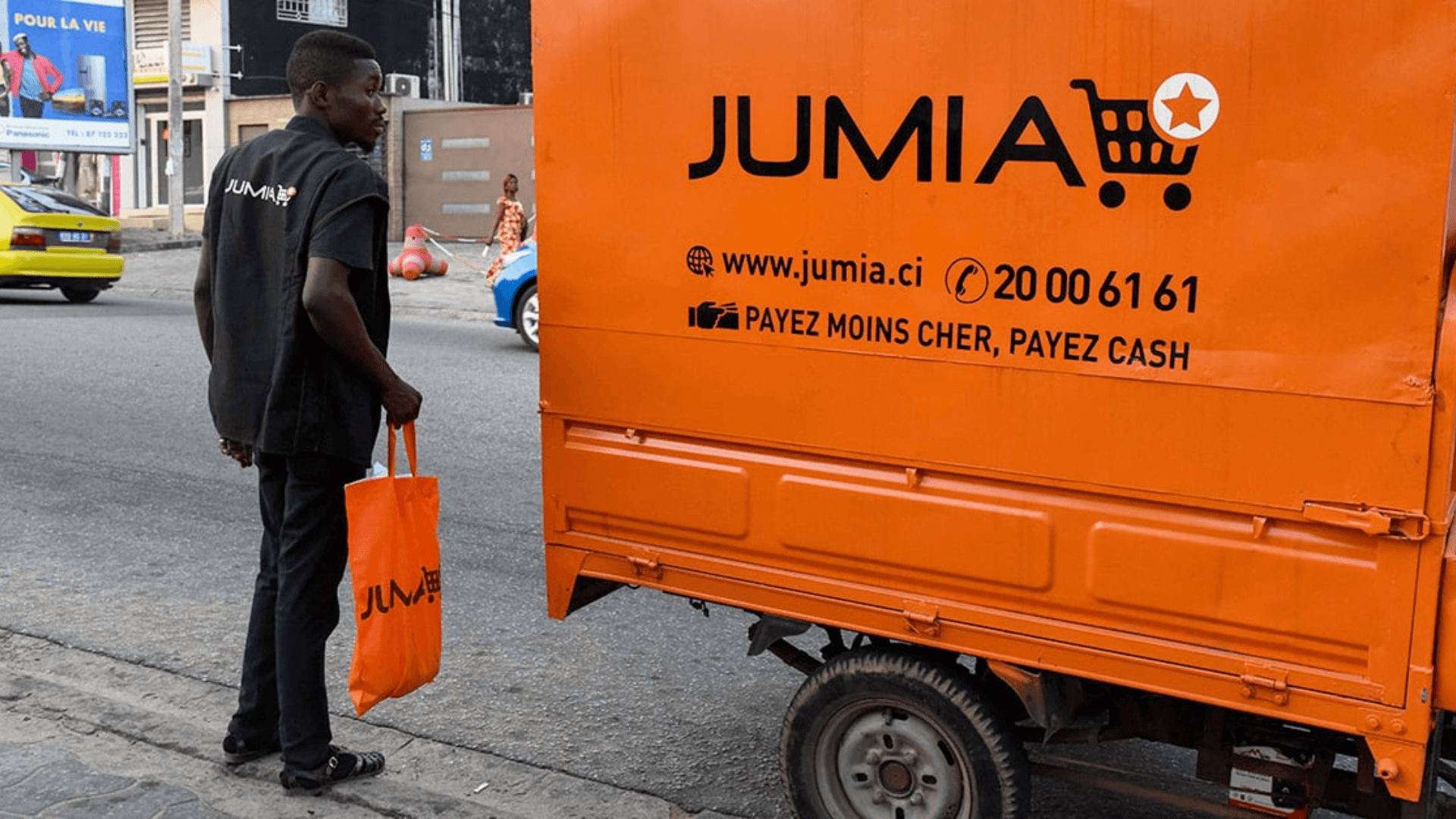News
Nigeria has more e‑commerce potential than further Africa expansion, says Jumia boss
February 12, 2025Company News

The pan-African New York-listed ecommerce company Jumia is focused on consolidation in the nine countries where it operates rather than expanding to new markets, says CEO Francis Dufay, who claims a turnaround in growth.
Jumia CEO Francis Dufay tells The Africa Report that rather than expanding further into other African countries, the company aims to increase its e-commerce penetration in the nine it operates in: Nigeria, Egypt, Algeria, Morocco, Senegal, Côte d’Ivoire, Uganda, Kenya and Ghana. “A lot of restructuring in the organisation” was carried out last year to pave the way for growth in 2025.
“We have finished a profound transformation and are finally starting to see the positive results of everything we did. We restructured our logistics network, reduced costs and optimised our operations,” he says during an interview in Lagos. He says the company has “huge potential to scale just by increasing penetration” in its countries of operations. “The penetration of ecommerce in those markets is still relatively low. We’re operating in markets with 600 million inhabitants and in 2023, we served about 5.7m people. So, there is no need for new countries.” Jumia stopped its operations in South Africa and Tunisia in 2024, a year after discontinuing its food delivery business in Nigeria, Kenya, Uganda, Morocco, Tunisia, Algeria and Côte d’Ivoire.
“The food delivery business is a much smaller segment focused on more premium customers. It’s more expensive and a business with very low barriers to entry,” he says. “It was not our core business and we cannot keep spending money on that kind of risk. The big opportunity for us in Africa is e-commerce.” Growing Africa’s e-commerce market share Dufay describes Africa’s e-commerce market as “too small” because a “very low percentage of disposable income is going into it”.
“We are not fighting online competitors. We are fighting offline retail at this stage. The size of the pie is still too small. So, we need to grow the market size,” he says. “And it will grow only if players like us understand the market and serve it the right way.” He points out that the market had not grown much because e-commerce companies on the continent were not focusing on the needs of the broad middle class. “They were focusing on the premium segment, which is too small. Sometimes people ask me: are African consumers ready for e-commerce? The right question is whether e-commerce is ready for African consumers.”
E-commerce in Africa is not the same as in Europe, Brazil, the US or China because purchasing power as well as supply and logistics ecosystems are different, says Dufay. “If African e-commerce companies manage to adapt their business to serve the real market, then it will be big. Consumers are ready to switch to anything that gives them value. Our customers in Africa are channel-agnostic. If they can find better value somewhere else, they will switch,” he says. He says Jumia is focused on growing the share of e-commerce to make it a sizable market. “Our main competition is offline. When it comes to online, in most of our markets we are by far the biggest player, including in Nigeria. So, we are not specifically fighting an online competitor, Konga or anyone else,” he adds. Expansion into Nigeria: Kano, Kaduna, Maiduguri Dufay describes Nigeria as a vast market massively underserved and under-penetrated by e-commerce.
“That’s why we’ve been focusing quite a lot on Nigeria over the past two years.” He says Jumia has consolidated its many inefficient warehouses into a big one in Lagos and is expanding its network to serve more cities upcountry using pickup stations. “In 2024, we expanded in the hinterlands of Lagos and the Delta,” he says. “Another big push is going north. We’re investing a lot in expanding the logistics and delivery network, and setting up marketing activities in Kano, Kaduna and Maiduguri.”
Rural expansion to drive business, says Jumia Group CEO He says it’s more important to him to increase penetration in the northern or eastern region of Nigeria rather than entering new countries. “There’s more potential for us and more profitability because we’re leveraging existing assets, existing teams and existing logistics.” He points out that purchasing power has been quite constrained in the country for several years, “but there’s still relatively large consumer demand compared to the other markets in the region”. Jumia’s playbook: Offer what customers can pay for Dufay says the company is designed to serve consumer demand at scale for the African middle class. “We know how to serve people who make $100 a month and live in a small town. We’ve done that in many countries,” he says. Jumia’s customers have similar purchasing power, are looking for similar categories of products and supply is just as complex everywhere.
“The Jumia playbook is simple: maximum affordability, reliability and getting to where people are. We adapt to make sure that everything is priced as competitively as possible. We offer what customers can pay for,” he says. “We’ve massively pushed pickup stations rather than door delivery because many of our customers would rather go to a pickup station.”
In many African countries, consumers face a cost-of-living crisis caused by high inflation, currency devaluations and rising interest rates. “That customers are more and more cash constrained makes our business model even more relevant because we are focused on delivering affordable products and services,” Dufay says. He says Jumia’s financials for October and November showed its e-commerce business growing by 18% compared to the previous year. “Jumia is at a turning point. We have started to show that we can get back to significant growth. So, the year 2025 is going to be extremely interesting. It is the year when we will see the result of this transformation and revalidate that e-commerce is a real business in Africa. It can grow and get to profitability.”
Read the original article on theafricareport
About Jumia
Jumia is a leading e-commerce platform in Africa. Our marketplace is supported by our proprietary logistics business, Jumia Logistics, and our digital payment and fintech platform, JumiaPay. Jumia Logistics enables the seamless delivery of millions of packages while JumiaPay facilitates online payments and the distribution of a broad range of digital and financial services.
Follow us on, Linkedin Jumia Group and X @Jumia_Group
For more information about Jumia:
Abdesslam Benzitouni
[email protected]



